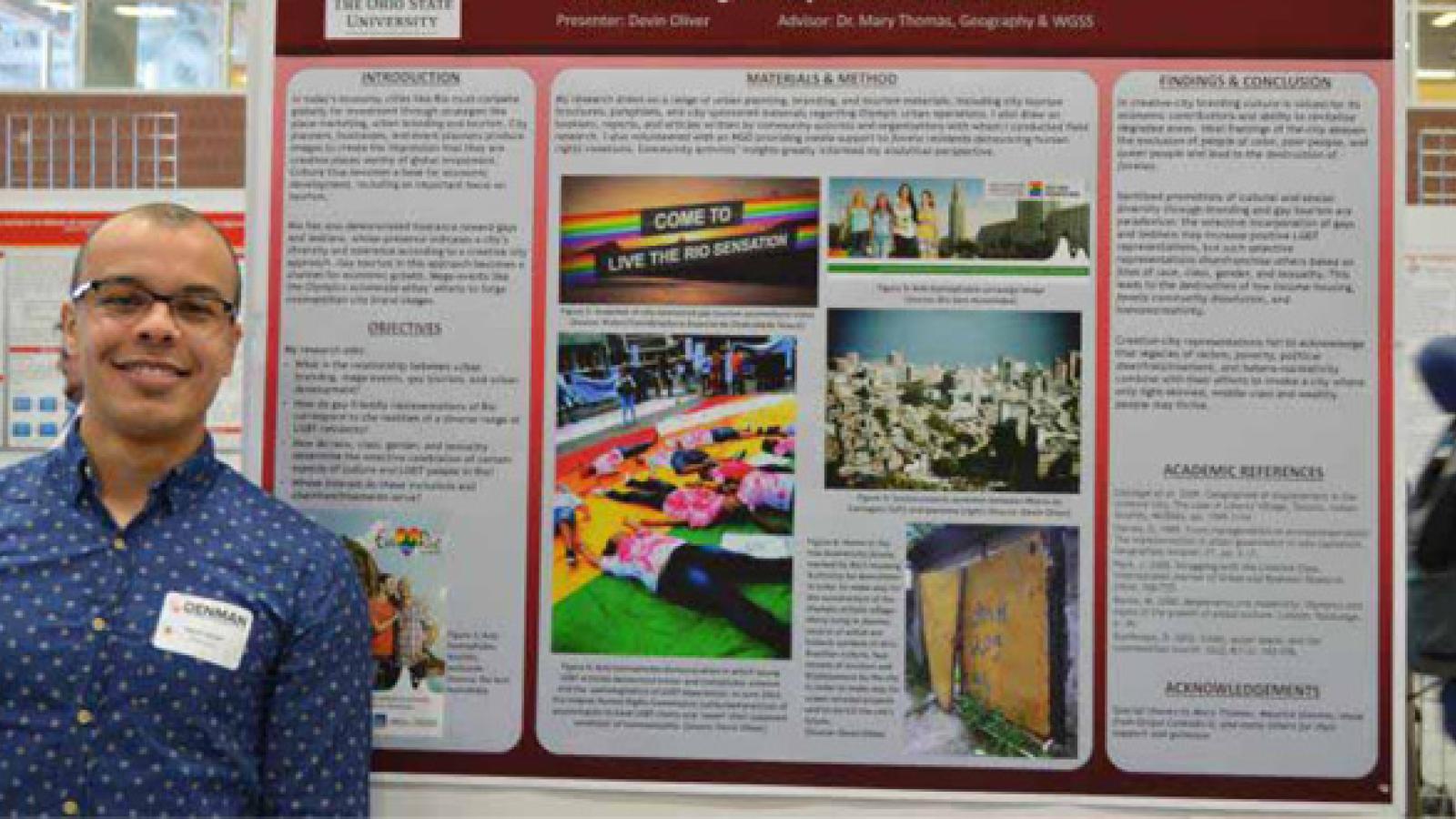Interrogating Paradoxes of Rio de Janeiro’s Gay‐friendly City Branding and Marketing
Presenter: Devin Oliver
Advisor: Prof. Mary Thomas
The branding of Rio de Janeiro as a modern, multicultural city integrates images and narratives about its sexual tolerance and diversity, which are increasingly visible through public celebrations like Pride and Carnival and citywide anti-homophobia campaigns. Government elites and tourism bureaus have aimed urban branding campaigns toward LGBT audiences in order to attract tourists and “creative” investment. Gay tourism is a growing industry which invests millions of marketing dollars to promote Rio as sexually diverse, fittng into broader narratives of social progress that megaevent hosting promises Brazil. My research particularly asks, who do these campaigns in/exclude? Whose interests does this serve? My proposed work investigates the assumptions underlying Rio’s “gay-friendly” branding and tourism campaigns, and to what degree do these narratives of diversity and progress represent realities of marginalized communities. My research illustrates that these gay-friendly campaigns are paradoxical. These may seek to promote state-sponsored commitments to ideals of diversity, inclusion and equality that fit within an “Olympic legacy” of urban regeneration. However, in reality these urban development strategies aim to deflect criticism of the state’s violations of such ideals and even forge new forms of exclusion and inequality. Such exclusions and inequalities are not only centered around class, but also sexual, gender, and racial identities. This selective incorporation of sexual minorities serves not only the interests of both Rio’s pro-growth urban agenda, but also the desires and fantasies of Western tourists who have long viewed Rio and Brazil as sites of sexual fantasy, home to bodies available for sexual consumption. My work helps explain how city planning agendas and the global tourist economy are organized along lines of class, race, gender, sexuality, and nationality. This work can also inform a growing transnational framework that decenters our current understandings of global LGBTQ identity politics, urban development, as well as urban “diversity”.

